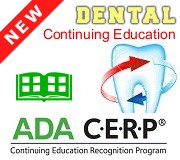USA, April 16, 2024 - Every once in a while I get a request from someone to share an article they’ve written. When it’s about dental health, especially relating to kids and families.
We eat a lot of sugar too much.
It’s in everything. Sometimes it’s just sugar, sometimes it’s corn syrup, or fructose, or any of the other names we call different kinds of sugar.
Because our sugar intake is higher than it should be, brushing our teeth is more important than ever. That’s why it’s important to develop good habits, as any dentist or hygienist will remind you (and remind you again).
Find (and use) the Right Toothpaste
Toothpaste is toothpaste, right? Well… not exactly. Toothpaste manufacturers have given consumers a huge choice when it comes to the types of toothpastes they have access to. Chemically, most of the toothpastes are very similar, but there are differences that some people simply don’t like.
For example, I don’t like gel. When I shop for toothpaste, I always go for the paste. I just like the mouth feel much better. Why? Beats me, but when it comes to finding the right toothpaste experiment with:
different textures.
different flavors and types.
To help you find one you or your child will enjoy using, the one that feels just right! If you like it, you’ll use it.
Brush Your Teeth before Eating
This isn’t something many people are taught when growing up. It almost seems counterproductive. However, there are a couple of reasons to do this.
Look at what you eat for breakfast. Many people have a little orange juice or fruit. Many of the popular breakfast fruits tend to be on the acidic side and when you brush your teeth after eating, this acid is still around and it doesn’t play well with tooth enamel.
When you brush afterward, you may continue to damage your tooth enamel and wear it down. By brushing before, you’ll avoid this extra damage to your tooth enamel.
You’ll brush away the icky bacteria that accumulated in your mouth while you slept.
When you do brush after eating, always wait a minimum of 30 minutes so the enamel has a chance to “recover” from any acids it may have been exposed to.
To Rinse or Not to Rinse, That is the Question
This one’s a bit different. There’s a bit of confusion about whether or not it’s a good idea to rinse after brushing your teeth. After all, why would you want all those remaining particles hanging around right after you swept them off your teeth? I wouldn’t. But, some people believe that rinsing will make the fluoride in the toothpaste ineffective.
Since fluoride seems to only work when it’s on the tooth, that makes sense, and rinsing with water has the potential to wash away that benefit. One way to get around that is to rinse with a fluoride mouthwash rather than water. That’s one way to get around it.
But guess what? If you are already taking great care of your teeth, brushing regularly and flossing, why worry about it. If you want to rinse, rinse! It’s up to you.
Brush Three Times a Day
Groan I know.
We’re told we should be brushing twice a day, but this reminds me of a visit to the dentist when I was a kid. He asked me if I was brushing twice a day, in the morning and before I went to bed. I would nod and he’d ask “Really?” Then my mom would butt in and tell him the truth.
Okay, sometimes I missed a few sessions. At that point, he gave me the reminder I’ve heard way too many times, “Brush twice a day.” Then he said something curious, “After every meal.” This confused me. Which one was it? Should I be brushing twice a day, or after every meal? After all, I eat three times a day.
My dentist thought about it for a minute and told me, “It’s best to brush after every meal,” and he would continue on with the appointment as usual. It makes sense, right? A lot of people eat three times a day, and after every meal food particles will get stuck and provide a well-balanced meal for bacteria. Just remember to wait at least 30 minutes after eating!





 Great Brushing Habits Every Kid (and Adult) Should Learn
Great Brushing Habits Every Kid (and Adult) Should Learn



